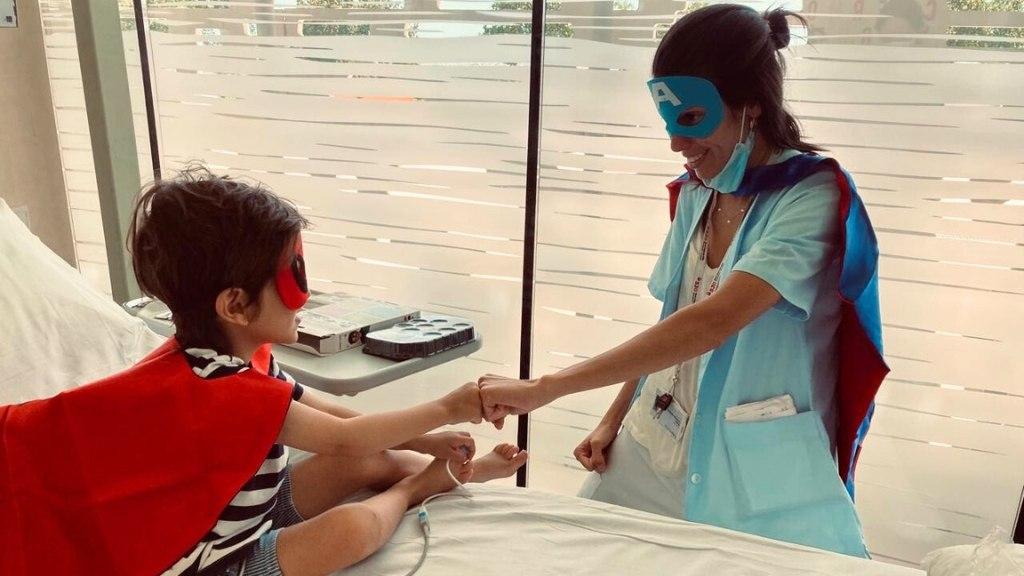
Simon underwent immunotherapy treatment developed at the SJD Barcelona Children’s Hospital to treat the most aggressive forms of neuroblastoma.
At just four years old, Simón started having a lot of pain in one leg, eventually severely impacting his ability to walk. Simón’s father explains that it took a few weeks for his son to receive a diagnosis, as doctors in their home country thought it was a bone infection, due to the boy showing no other typical signs of cancer.
When he was diagnosed with a high risk neuroblastoma, Simón followed the international protocol for treating this disease, namely chemotherapy, radiotherapy and surgery to remove the tumour. Simón also received a bone marrow transplant in Mexico, as the American Society of Clinical Oncology continues to recommend the double bone marrow transplant protocol.
The treatment Simón received in Mexico was not enough to achieve complete remission from his disease. Immunotherapy was the best alternative. It was then that Dr José Gabriel Peñaloza González, an oncologist at the ABC Medical Center in Mexico, referred the family to the SJD Barcelona Children's Hospital to receive immunotherapy treatment, which, at the time, was not available in Mexico. The SJD Barcelona Children's Hospital was one of only two hospitals in the world—the other being the Memorial-Sloan Kettering Cancer Center (MSKCC) in New York—to offer anti-G2 immunotherapy with naxitamab to treat refractory high risk neuroblastomas, until it was approved in November 2020.
‘Immunotherapy with superpowers’
In Barcelona, Simón received immunotherapy and chemotherapy treatment for one year. The Hospital has a team of professionals who specialise in patients’ emotional wellbeing, providing children and families with psychological support to help reduce the impact of the disease on their mental state. Receiving this support was especially helpful in easing Simón's anxiety during treatment. Santiago, Simón's father, recalls that ‘we made up a story so that the immunotherapy wasn’t so painful for Simón. Since he loved Spiderman, whenever they put the catheter in, we said that they were putting in the spider from Spiderman, and that they’d inject him with his superpowers’.
Simón has been in complete remission for the last two and a half years. He is in perfect health and leads a normal life like any other boy his age. As per Dr Jaume Mora's recommendations, Simón has a yearly check-up in Mexico, consisting of PET scan—a tomography scan that uses positrons to generate highly detailed images of the molecular and cellular function inside of the human body—as well as a bone marrow test.
Simón's father adds that ‘the SJD Barcelona Children's Hospital hits the mark every time. On top of the treatment results, which were excellent, the team is very caring, and everything is extremely well organised to help make life easier for families. There’s help with administrative tasks, no waiting at scheduled visits, and great coordination between departments so there are no added difficulties for the children or their families’.



